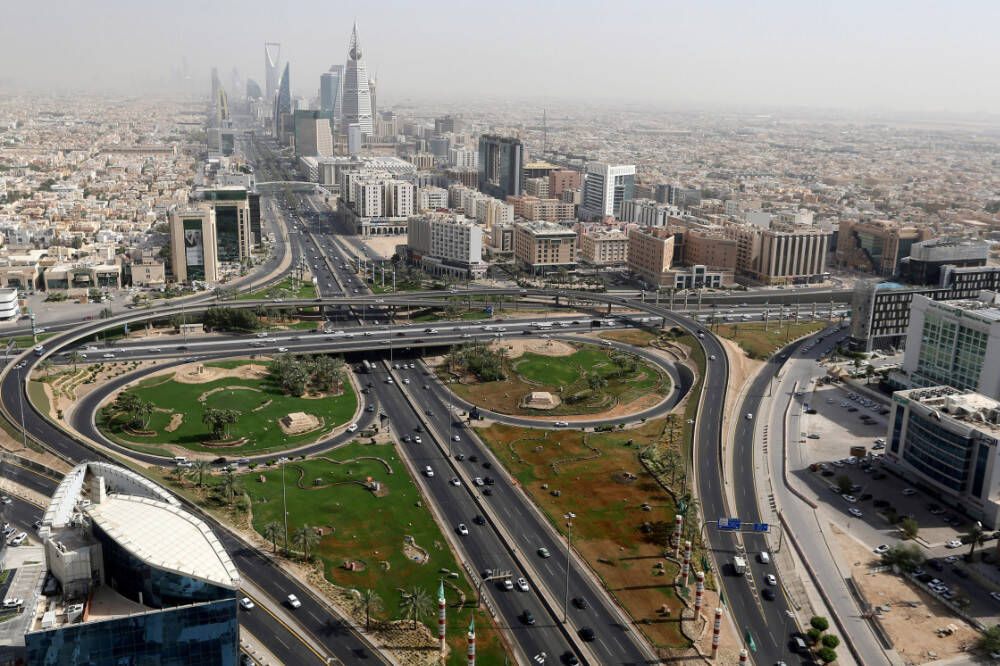It is not easy to be the man in the arena, as Theodore Roosevelt said, but today Saudi Arabia is in the spotlight. More so even than several years back, when it was mired in controversy across myriad issues, it is even more of a target today. Why? Because it is succeeding.
Writing these words in a paper in the Kingdom, it would be easy to be accused of bias. So let us be clear: Saudi Arabia does not have a transparent electoral process. It does not have human rights comparable to, say, Canada. There is still too much income inequality. There are foreign entanglements that continue to raise questions. Migrant workers should be treated better.
Saudi Arabia has a set of issues and challenges that one could highlight, but then, what country does not? It is not about equivocating but simply being real about the world.
Most nations outside of the West, indeed, face the same challenges as Saudi Arabia. Should we cordon off that side of the and be done with it?
It is not about countenancing the political system in Saudi Arabia or not. You may or may not like monarchy. You may prefer presidents to kings. Here is the rub if you are outside the Kingdom, though: if you are not Saudi, your opinion does not carry much weight. So, either deal with the system as it is or do not, but remember, it is not yours to change.
That said, if you believe in change — progressive change — and equitable prosperity, there is no better moment than now to invest in Saudi Arabia.
The changes in the span of the last five years are shocking. Critics still wield the same talking points about women and gender equity, but just one visit to the Kingdom will make your head spin from where it was in decades past. Women are everywhere — in the cafes, in the boardrooms, on the frontlines from e-commerce to security.
Whether you like Saudi Arabia or not, you should be cheering for its success, and if you are smart, you should be doubling down and getting on the next flight to Riyadh.
As significant as the substantive changes for women in Saudi Arabia are — far too significant to capture here — what is happening in the Kingdom goes well beyond this one issue. The country is trying to move from being dependent to independent — from being a place that invests abroad to being a place that innovates at home.
It is one of the world’s youngest and highest-educated countries, with vast natural resources, financial resources, and, most of all, a vision. Now, there may be some lamentation that the cookie-cutter McKinsey/BCG visions are but a mirage. That is partially true, but the vision does not come from there, but from the top — and that vision, more than all the PowerPoint slides, is about creating an innovation engine in the country and a level of excellence and performance from all sectors, private or public.
There are rare moments when we can witness a country moving from one era to the next. It has happened in South Korea. It has happened across Eastern Europe. It has happened in some parts of the Middle East as well. Right now, it is happening in Saudi Arabia.
Yet, some people want the Kingdom to fail. This is mind-boggling. In whose interest would it be that Saudi Arabia does not prosper, does not grow, and does not reach the next level of human development? Would its transformation not be an asset for the world? Would the birthplace of Islam being a prosperous, inclusive land of opportunity not send a powerful message to all? Do people want a Saudi Arabia for 2030, or a Kingdom that belongs in 1930?
Whether you like Saudi Arabia or not, you should be cheering for its success, and if you are smart, you should be doubling down and getting on the next flight to Riyadh.
• Taufiq Rahim is a strategist, investor and writer focused on the intersection of global geopolitics and transformative technology. Over the last two decades and in over 20 countries, he has driven investment, convened conversations and brought together public and private partnerships to tackle the most pertinent global issues. X (formerly known as Twitter): @thegeopolitico











